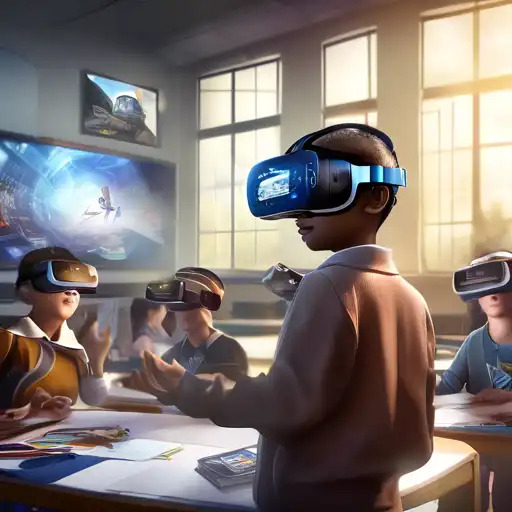Revolutionizing Learning: The Impact of Virtual Reality in Education
Virtual Reality (VR) is transforming the educational landscape, offering immersive learning experiences that were once unimaginable. This technology is not just a tool for entertainment but a powerful educational instrument that can enhance understanding, retention, and engagement among students of all ages.
The Benefits of VR in Education
VR in education provides a multitude of benefits, including but not limited to:
- Enhanced Engagement: VR captivates students' attention like never before, making learning more interactive and fun.
- Improved Retention: Immersive experiences help in better retention of information by engaging multiple senses.
- Accessible Learning: VR makes education more accessible, allowing students to explore virtual worlds and concepts beyond their physical limitations.
- Safe Environment: It offers a safe space for students to experiment and learn from mistakes without real-world consequences.
Applications of VR in Various Educational Fields
From history to science, VR is making its mark across various educational fields. Here are some examples:
- History: Students can virtually visit ancient civilizations, witnessing historical events unfold before their eyes.
- Science: Complex scientific concepts, like molecular structures or the vastness of space, can be explored in a 3D environment.
- Medical Training: VR provides medical students with a risk-free platform to practice surgeries and diagnose virtual patients.
- Language Learning: Immersive environments allow learners to practice new languages in realistic settings.
Challenges and Considerations
Despite its potential, VR in education faces several challenges:
- High Costs: The initial setup and maintenance of VR technology can be expensive.
- Technical Issues: VR requires robust hardware and software, which can be prone to technical glitches.
- Health Concerns: Prolonged use of VR headsets may cause discomfort or health issues for some users.
However, as technology advances, these challenges are gradually being addressed, making VR more accessible and user-friendly.
The Future of VR in Education
The future of VR in education is bright, with ongoing advancements promising even more innovative and effective learning tools. As VR becomes more mainstream, we can expect to see its integration into curricula worldwide, offering students unparalleled learning experiences.
For more insights into how technology is shaping education, explore our technology in education section.
Virtual Reality is not just a fleeting trend but a significant leap forward in educational technology. By embracing VR, educators can provide students with engaging, immersive, and effective learning experiences that prepare them for the future.
